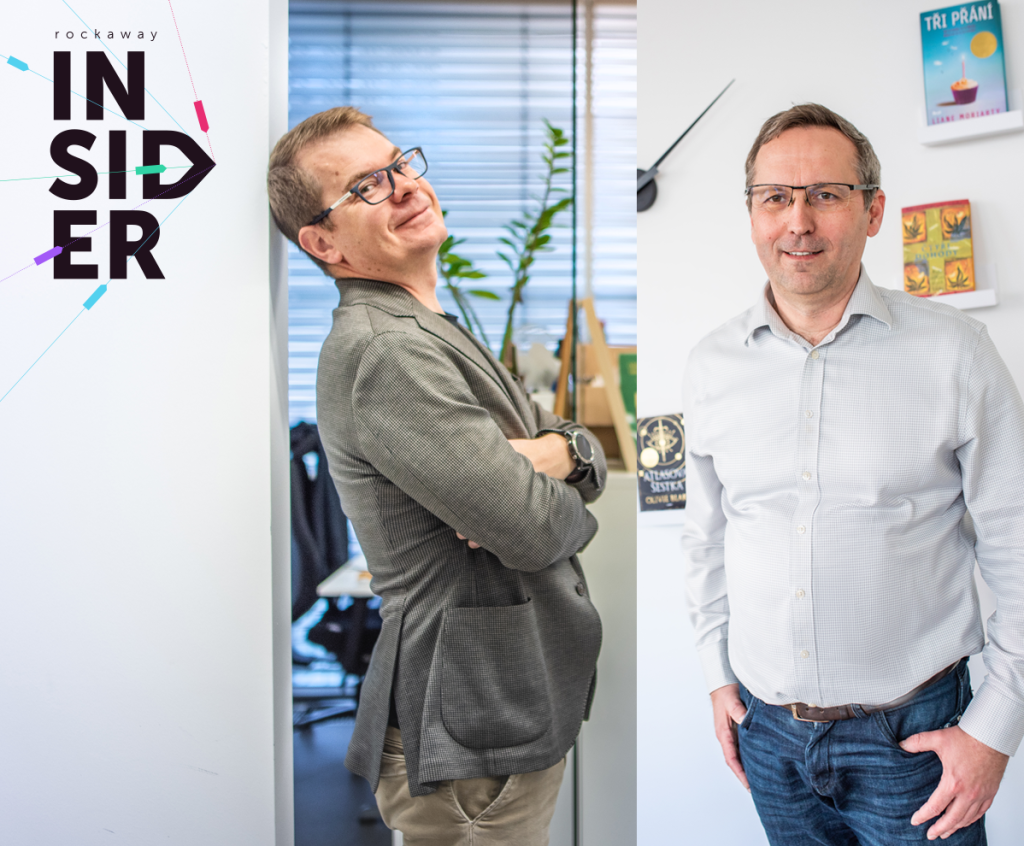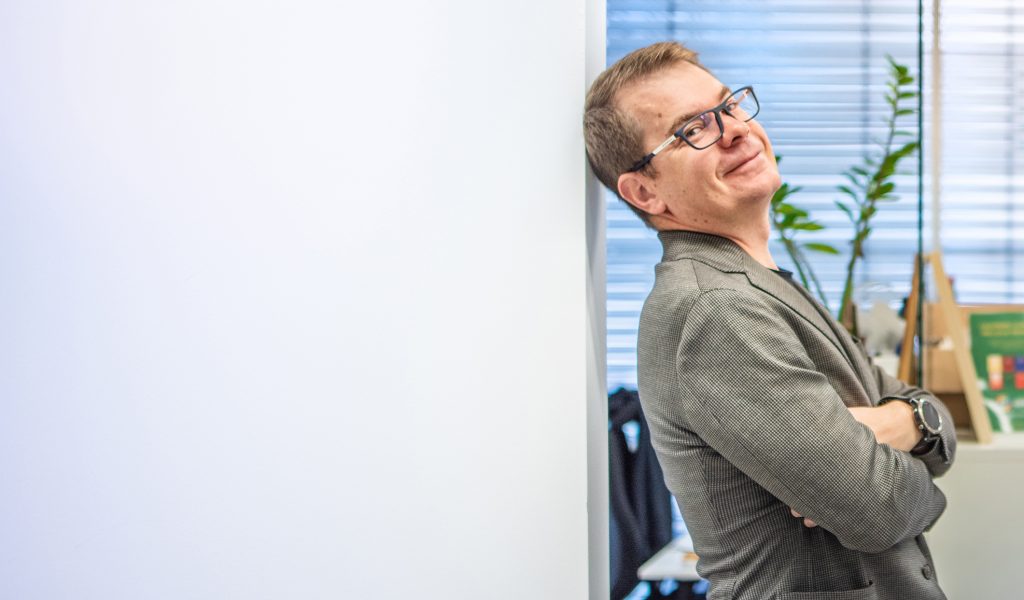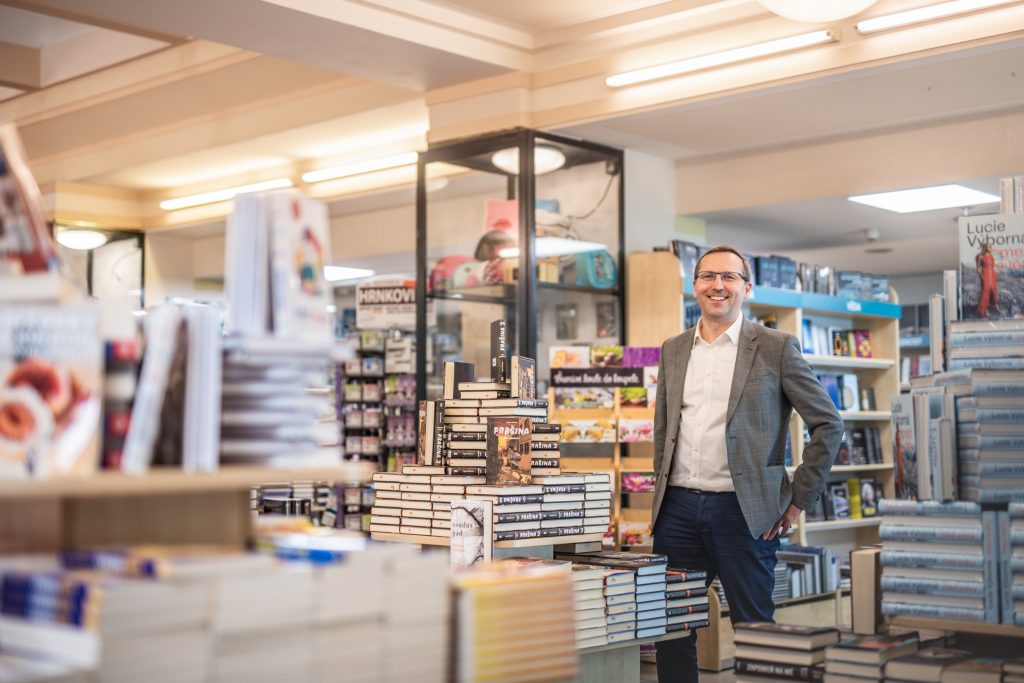All newsInterview with Robert Chmelař: We’re playing poker, but luckily with a good hand
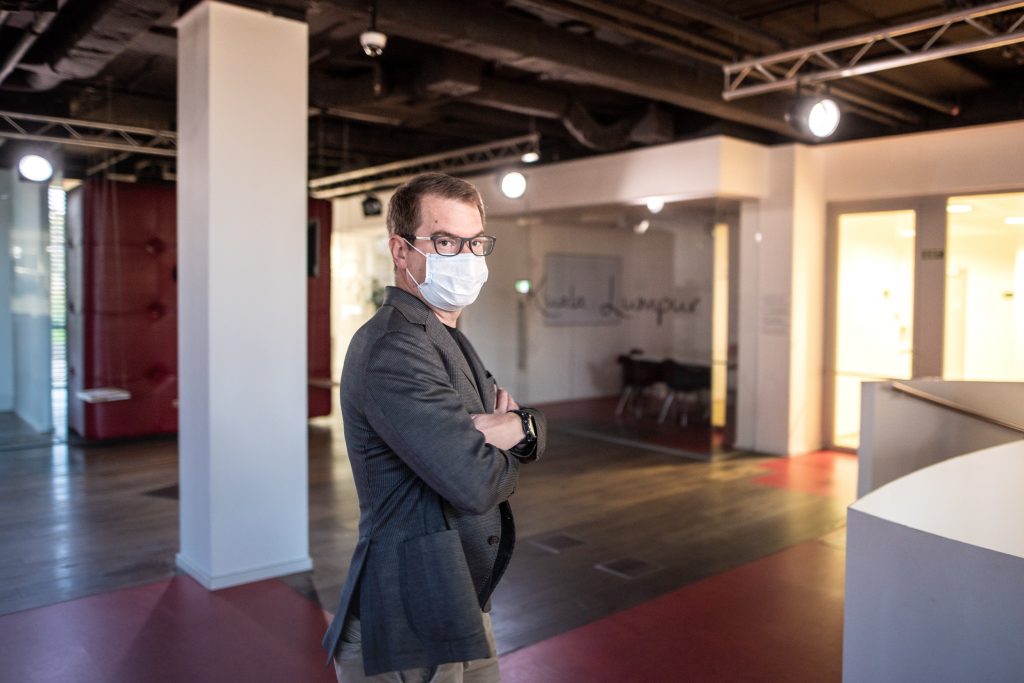
Robert Chmelař on the impact of the corona-crisis, anticipating change, and the most important decision that is making life easier for Rockaway in the current crisis. “We have one of the best portfolios that can now exist, because right from the start we have been betting on digitization, the digital economy and e-commerce,” says Rockaway Capital investment partner.
Though he admits that he’s no great fan of card playing, the poker analogy keeps popping up through the entire interview with Robert Chmelař. This game, in which nothing is certain right up to the last moment, and in which you have to choose each step carefully and react properly as it develops, perfectly describes not only this year, but also the situation in which the companies in the Rockaway portfolio are currently in.
This is because the past year has confirmed that those who bet on digitization and adaptation have a major trump card in their hand. While nothing is certain, Robert remains optimistic. “The crisis is creating lots of opportunities, and I am sure that this time around a lot of companies will also emerge, ones that ten years down the line we’ll be hearing a lot about, and we want to be there when it happens. We are lucky that we are playing this game of poker with very good cards,” says Chmelař.
What’s the most important thing the coronavirus epidemic has taught you?
There are two things. People have a tendency to forget negative experiences, so I think that two years from now we will have forgotten COVID-19 as well. Sooner or later, the world goes back to business as usual, and from a historical perspective this pandemic will be just another episode. For example, September 11 was a huge tragedy, one that of course somehow changed the “world order”, but despite that everyone thought that nothing would be as it had been, not that much actually changed in daily life. Today, all that remains is somewhat more stringent security at airports.
And the second thing?
It showed us that you need to be prepared for change, not to be afraid of it, to anticipate it, and, in fact, to search for it a bit. You can’t rely on anything that has worked up so far, and on the contrary, you need to constantly stay on your toes. I’m a big believer in “black swans”, the theory that describes the significant impacts of highly unlikely events on society. Many such things have occurred in the past: September 11th, the collapse of Lehman Brothers…
And the coronavirus is one of these.
Yes. A number of people will claim that a pandemic such as COVID-19 was predictable, and after it’s all over, I am sure someone will be found who had been warning of this. While that may sound nice, people did not behave like it was coming, so in the end the fastest and most adaptive will come out as winners anyway.
The quickest wins?
The world is accelerating; I can see it in my children and the school system. And it is happening in business too. That’s why it is key to surround yourself with people who are able to make changes quickly, and above all, to anticipate them. In our portfolio, we have companies that managed this brilliantly, such as Mall Group, which in my opinion was one of the best-prepared companies in the Czech Republic, but of course, like everyone, we also have companies that were unable to react to change as quickly, or were simply in a “wrong” sector.
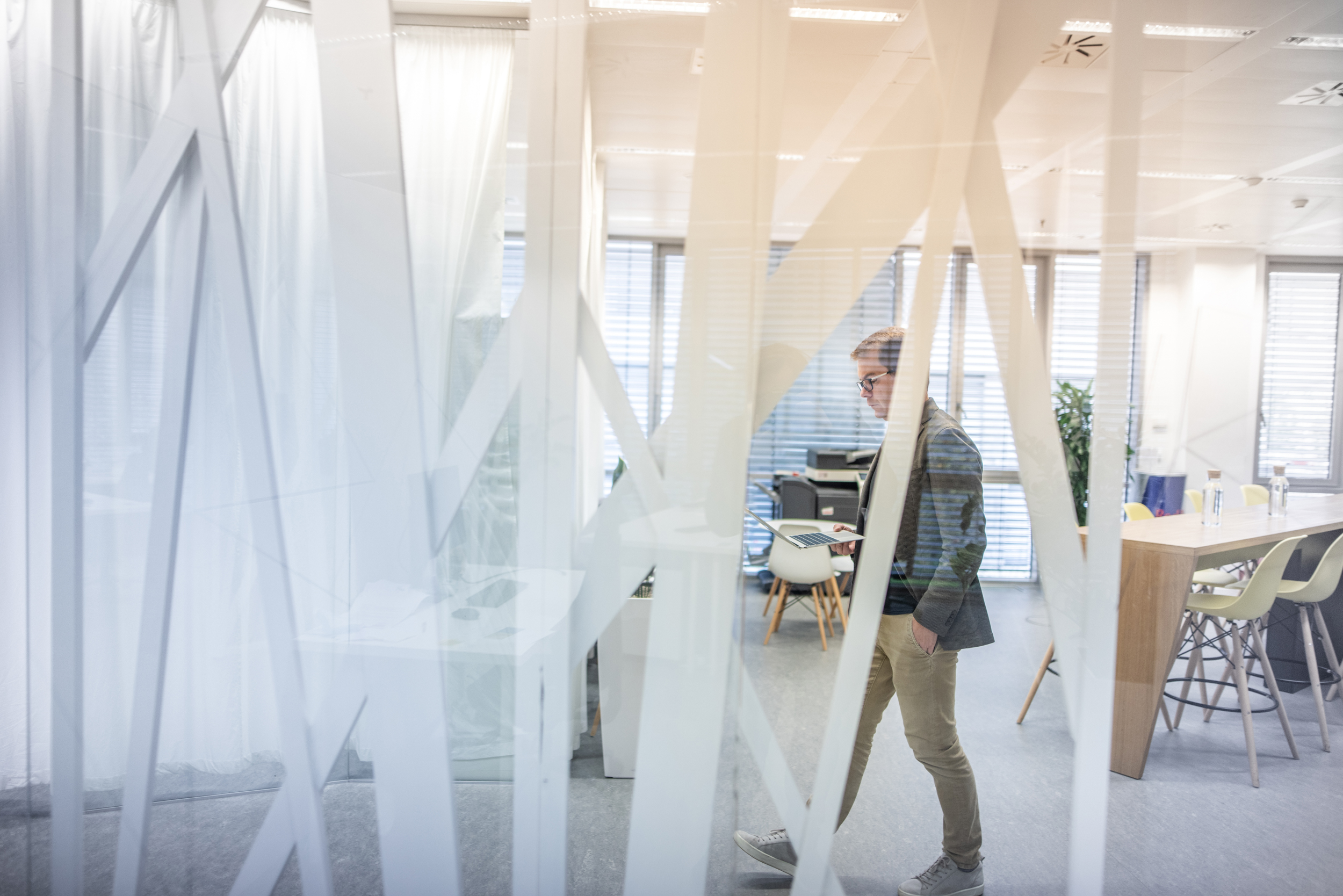
What do you mean?
The current crisis has the drawback that it has hit some more than others, so there are companies that are simply unlucky and can’t do anything about it, even if they were run by Jeff Bezos. A good example is Invia, because travel is suffering all over the world. On the other hand, it is still better to be an online travel agency than one of those traditional tour operators with its own hotels and planes, so here too it could turn around and go in a very good direction.
How is the current difficult situation impacting Rockaway and the other companies in our portfolio?
I have to admit that I don’t play cards much, but now I feel like I am. Running a business during the coronavirus crisis is like playing poker and constantly teetering between winning and losing. While I believe in the first scenario, it’s necessary to realize that today’s world is so volatile that nobody knows that will happen a week down the road. Just recall how a mere month back we were all smiling in the belief that the epidemic was behind us, and suddenly almost everything is closed again.
So what does that mean in practice?
We are lucky that we are playing this game of poker with very good cards. We have one of the best portfolios that can now exist, because right from the start we have been betting on digitization, the digital economy and e-commerce, which should benefit from this situation in the long run.
What decision was key for managing the crisis during the last half year?
From today’s perspective, we made a key decision a year and a half ago, when we decided to not sell Heureka. The sale was already underway, but at the last moment we decided not to sell. It wasn’t an easy decision, but today we’re glad we made it, because Heureka is a company that’s making this poker game a lot easier for us. It’s growing faster than the average and at the same time very profitable. It’s our trump card.
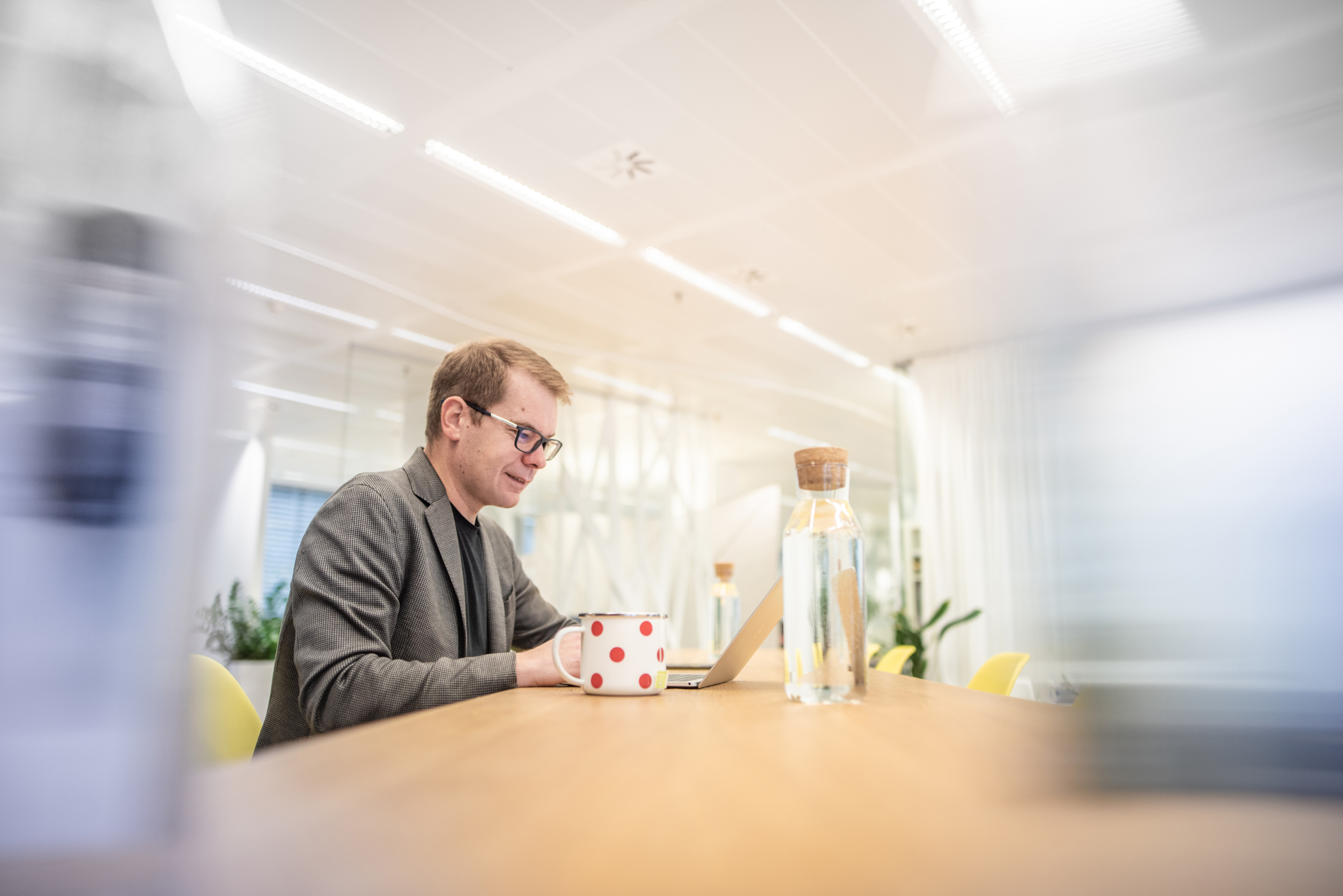
From your perspective, what’s the hardest thing about the current crisis?
One thing I’ve already mentioned – some sectors have been hit harder than others. So in the first phase, those who go out of business won’t necessarily be the incompetent ones, as our president says, but simply those who had the bad luck to be in the wrong place at the wrong time. The second biggest challenge I see is in communication, which is currently quite difficult, both within companies and across the businesses.
We aren’t meeting in person, some of our colleagues are working from home, and personal contact is quite restricted.
Yes. Home offices are certainly great, but you just can’t some things via email, Teams, or Zoom. It’s becoming clear that working from home five days a week doesn’t work, nor does it make sense to sit in an office all week, so our companies are currently working hard on finding the right model, one that will continue to work even after the epidemic is over. So far, the best combination seems to be when people spend two to three days together in the office and work from wherever thy like for the rest of the week.
Do you see any similarity with the last crisis in 2008?
Back then it was a liquidity crisis. Good businesses were doing well, but banks stopped lending, there was no money available. This makes the current situation quite different, but both crises have one thing in common. Back then, like now, many companies suffered great setbacks and some did not / will not survive, but on the other hand many new businesses emerged, ones that today, twelve years on, are hugely successful. It won’t be any different this time around. The crisis is creating lots of opportunities, and I am sure that this time around a lot of companies will also emerge, ones that we will be hearing a lot about ten years down the road. At Rockaway we want to be there when it happens.
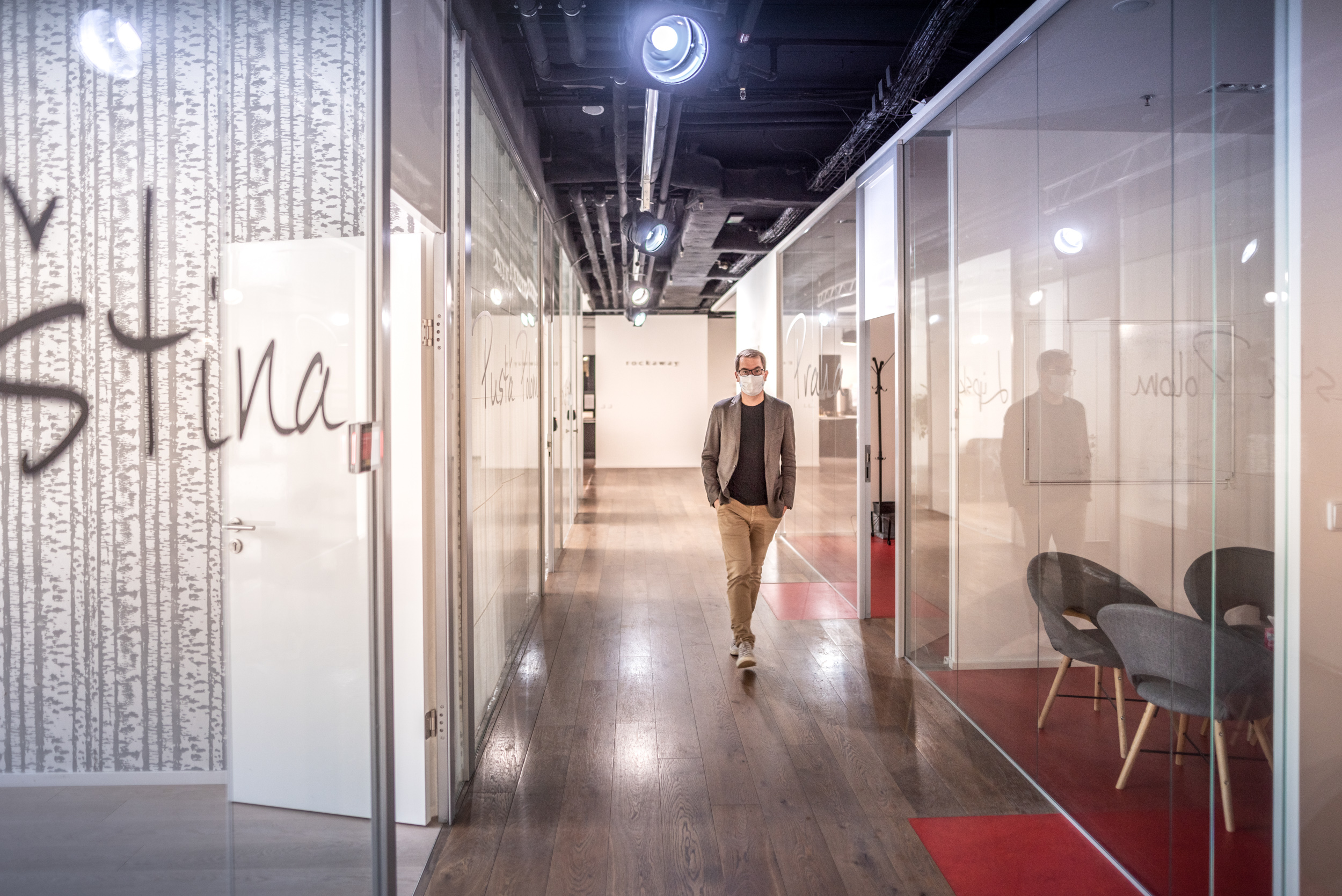
The problem is that Czech are starting to save. Year-over-year consumption has declined by 6 %, savings are at an historical maximum – 18.5 %. In the spring people weren’t afraid to spend yet, but now things could be worse. What can we do?
The impact on the economy will be huge before people’s confidence that they won’t lose their jobs is restored. It’s a combination of both of the trends you’re talking about – they’re starting to save and don’t have any reason to spend. When you can’t go on vacation, you don’t need a swimsuit. When they close your pub, you won’t drink your paycheque away. I’m exaggerating now, but that’s how it is: right now you can do without lots of things.
So how do you expect things to develop?
A month ago, I would most likely have said that there is no reason to panic, but now I’m a bit skeptical. If we have shut down a part of the economy for three weeks now, it simply won’t open again in three weeks, because I don’t think that in December things will be any different than they are in October. That’s why I’m subconsciously preparing for restrictions remaining in place until at least the spring. And so after taking a detour we have arrived back at what I said at the beginning. It’s about the ability to adapt, to anticipate. Not the Covid itself, but what comes with it. And this, I think, we are managing to do well. That’s why I’m confident that we’re on the right path.




